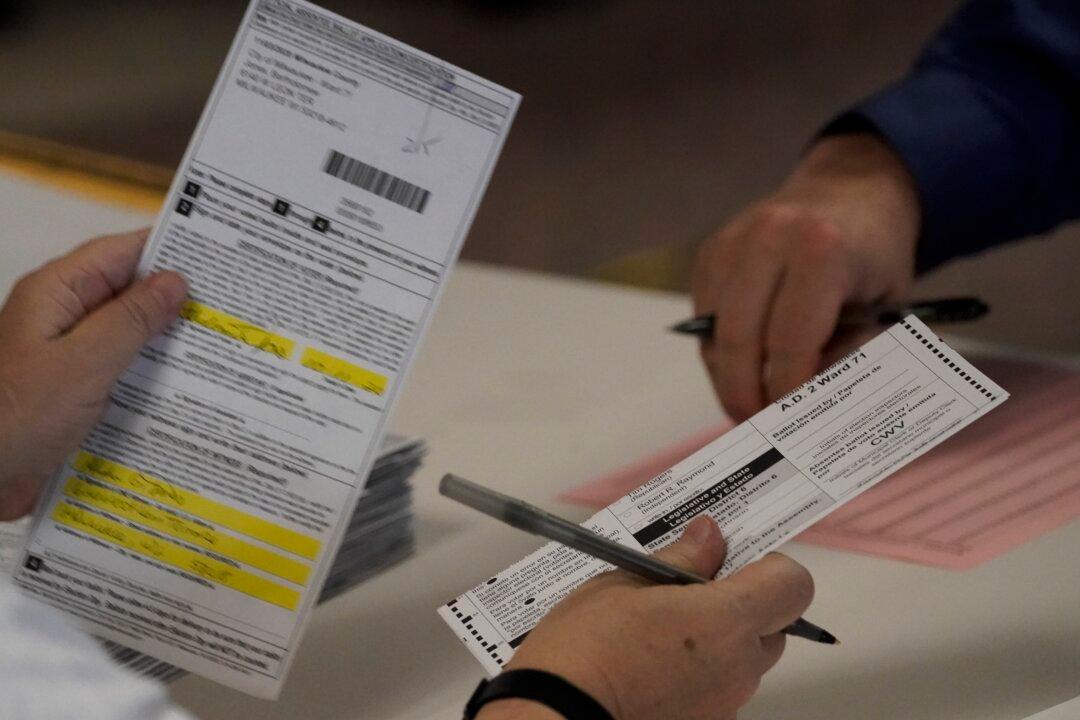The Wisconsin Elections Commission on Wednesday night issued an order to recount ballots in two counties following a request by President Donald Trump’s campaign.
Commissioners in a video teleconference on Wednesday argued for nearly six hours before ultimately agreeing to conduct the recount.





